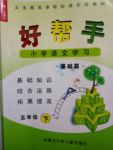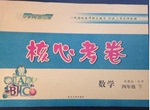题目内容
Ⅲ、完形填空(15分)
From Monday to Friday most people are busy working or studying,but in the evenings and weekends they are free and 31 themselves.Some watch television or go to the movies,others 32 sports.This is decided by their own 33 .
There are many different ways to spend our 34 time.Almost everyone has some kind of 35 :it may be something from collecting stamps to 36 model planes.Some hobbies are very 37 ,but others don’t cost anything at all. Some collections(收藏) are worth 38 of money, others are valuable(有价值的) only to their owners.
I know a man who has a coin collection worth several 39 dollars. A short time ago he bought a rare(罕见的)fifty-cent piece which 40 him 250 dollars. He was very happy about his collection and thought the price was all right. On the other hand, my youngest brother collects match boxes. He has almost 600 of them, but I wonder 41 they are worth any money. However, 42 my brother they are quite valuable. 43 makes him happier than to find a new match box for his collection.
That’s 44 a hobby means, I think. It is something we like to do in our free time just for the fun of it. The value in dollars is not important, 45 the pleasure it gives us is.
31. A. love B. work C. enjoy D. play
32. A. look like B. take care of C. think about D. take part in
33. A. lives B. interests C. jobs D. things
34.A. working B. free C. own D. whole
35 .A. hobby B. thing C. job D. way
36 .A. make B. making C. makes D. made
37.A. interesting B. exciting C. cheap D. expensive
38 .A. a little B. a few C. a lot D. a number
39 .A. thousand B. thousands C. thousands of D. thousand of
40.A. paid B. cost C. took D. spent
41 .A. that B. if C. what D. why
42 .A. to B. on C. with D. in
43 .A. Everything B. Anything C. Nothing D. Something
44 .A. where B. how C. what D. why
45.A. so B. but C. because D. as
31---45 CDBBA BDCAB BACCB
略

练习册系列答案
 小学学习好帮手系列答案
小学学习好帮手系列答案 小学同步三练核心密卷系列答案
小学同步三练核心密卷系列答案
相关题目
 time passes much faster during traffic jams
time passes much faster during traffic jams admit D. control
admit D. control